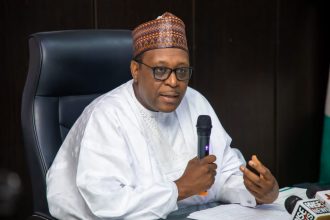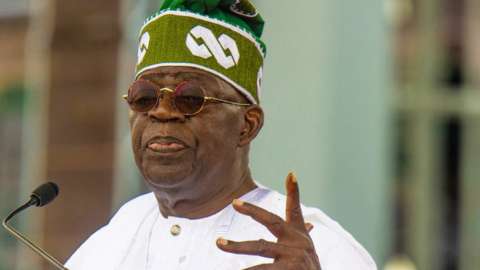Mediaage NG News – ABUJA, Nigeria
In a move to encourage foreign companies to employ more of its citizens, Nigeria has imposed a mandatory annual levy for organisations employing expatriate workers, requiring them to pay $15,000 (£12,000) for a director and $10,000 for other categories.
President Bola Tinubu, while launching the Expatriate Employment Levy (EEL) handbook on Tuesday, said the aim is to improve revenue and indigenisation.
However, he said staff of diplomatic missions and government officials are exempted.
The levy applies to employees who work for at least 183 days in a year.
A fine of up to three years and jail terms of up to five years for a person or organisations that do not comply, including failure to provide accurate information, has been imposed.
The President warned that the levy should not be used to frustrate potential investors but, its aim is to balance employment opportunities between Nigerians and expatriates.
“The goal is to close wage gaps between expatriates and the Nigerian labour force while increasing employment opportunities for qualified Nigerians in foreign companies in the country”, the president said.
According to the Nigerian Ministry of Interior, there are more than 150,000 expatriates working mostly in the oil and gas, construction, telecommunications and hospitality industries in the country.
Minister of Interior, Olubunmi Tunji-Ojo said the scheme would be operated on a public-private partnership model between the government, the immigration service and a private firm.
Nigeria is currently experiencing its worst economic crisis in a generation and has led to widespread hardship and anger in recent months.
Labour unions and government workers on Tuesday held a protest against economic hardships.
Mr Tinubu said efforts are made to improve the country’s finances and grow the economy. He acknowledged that Nigerians are going through a difficult period.






